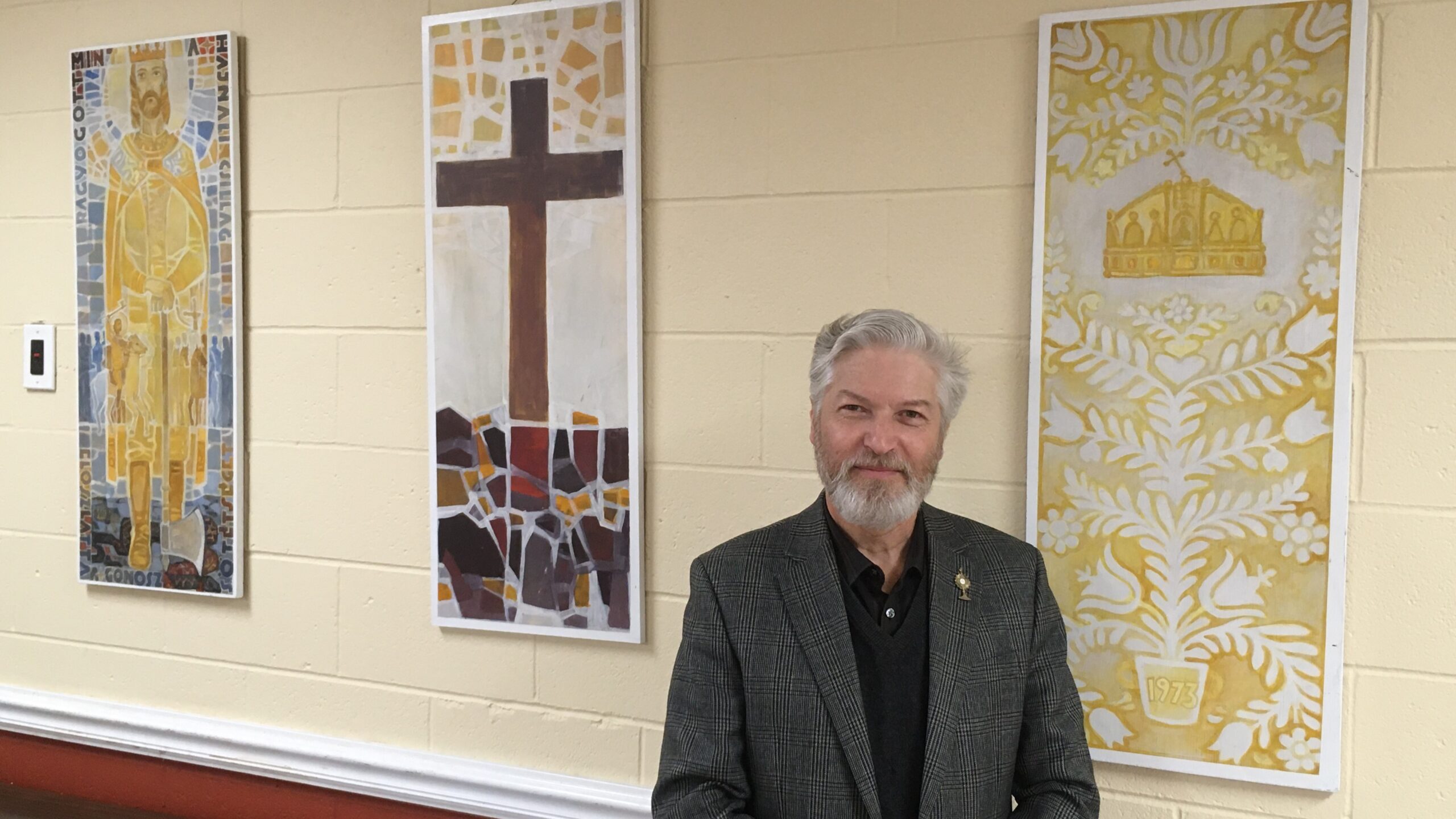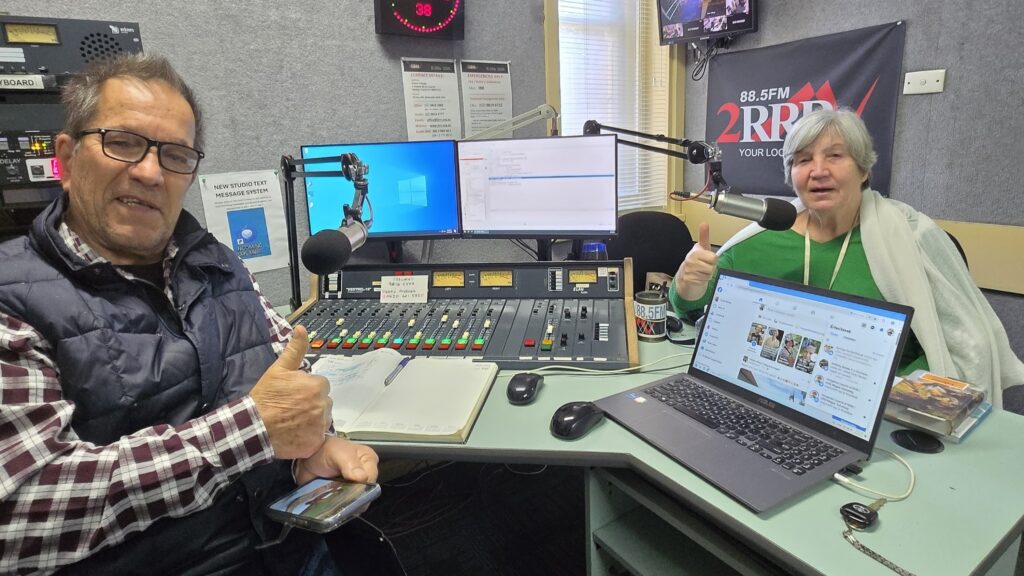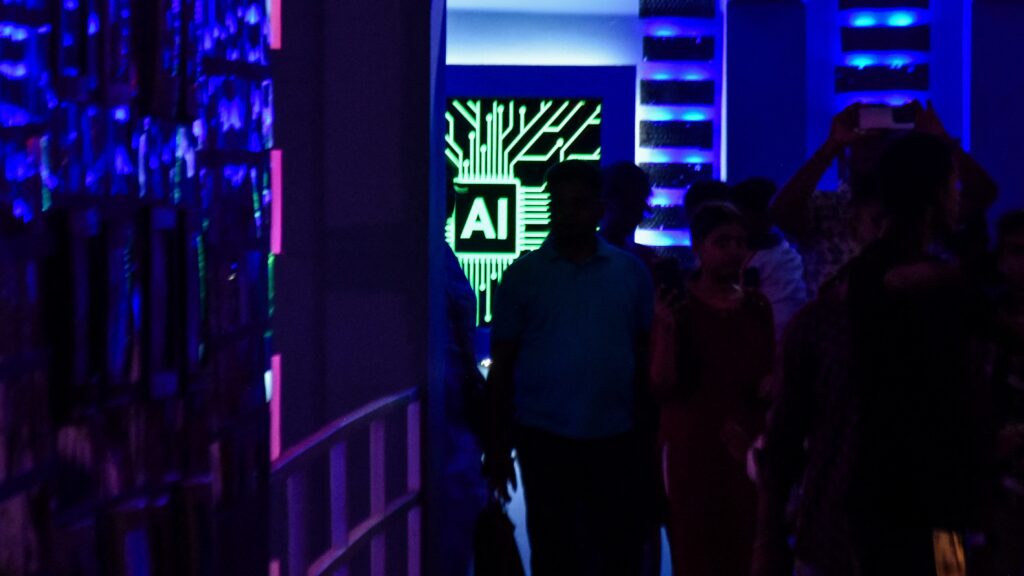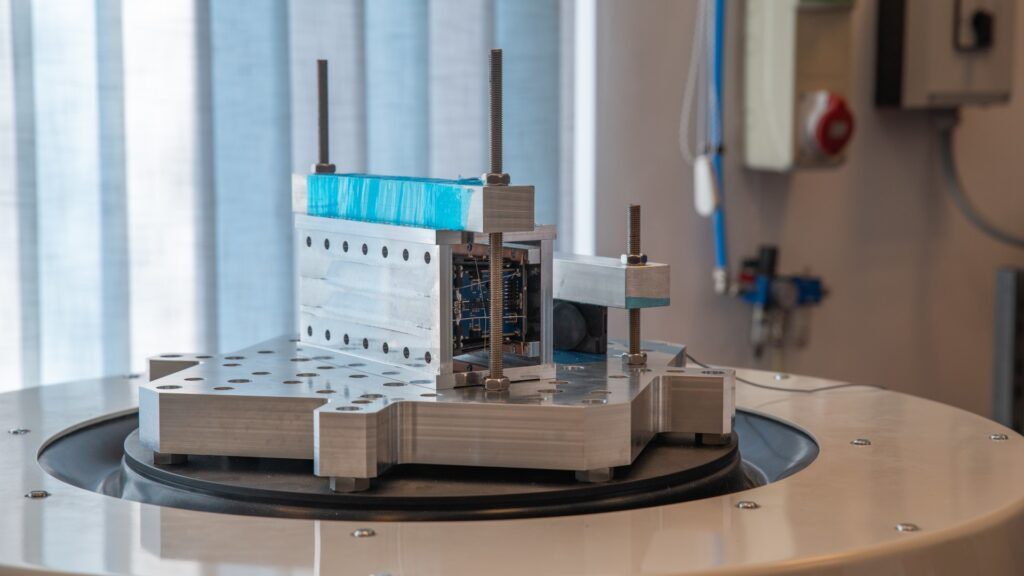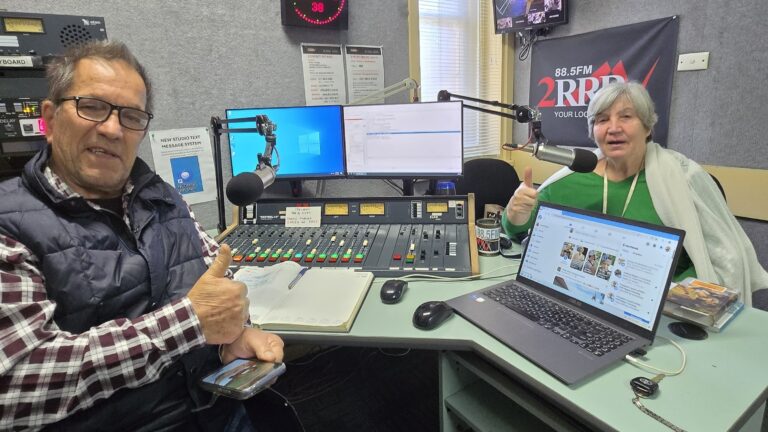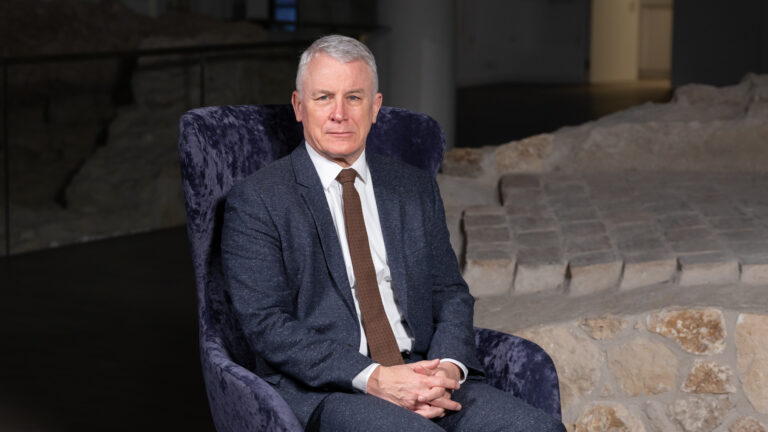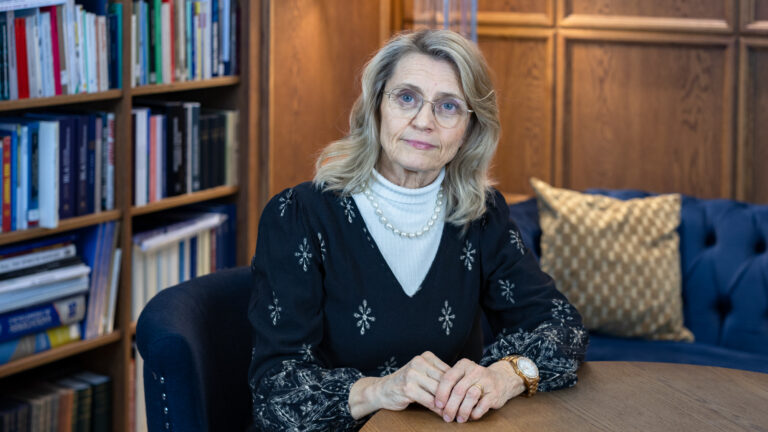This is an abridged version of the original interview first published on 777.hu.
I first met István in New Brunswick at Father Imre Juhász’ celebration of his 20th anniversary of priesthood. He has been serving the local Hungarian community for the past 45 years along with his wife Dr. Brigitte Mihályfi. István has been vice-president and president of the local Hungarian Catholic church’s council; served as president of the local Hungarian scouts’ Parent Organization; as a teacher, assistant principal and principal of the local Hungarian school; as treasurer, vice-president and president of the local Hungarian club to name just a few of the many hats he has worn.
***
Immigrating to America Twice
István’s parents arrived in America in 1951 as displaced persons (DP’s). They escaped from Hungary in 1948, met in a refugee camp in Austria and got married there. His father spoke fluent German, Latin and quickly learned English in a few months while he was employed at Bethlehem Steel Works in Pennsylvania. ‘It was not at all pleasant and by no means an easy way he had to earn his bread’ to provide for his growing family: their daughter was born in Austria in 1950, followed by their son in the summer of 1958 in America. His mother was employed in a factory as an assembly line worker. They were both industrious so within a short time they had the financial means to buy a home and a restaurant business with apartments for rent above. They then moved to Allentown, Pennsylvania and from there to Baltimore, Maryland, where upon the personal invitation of Dr. Ferenc Györkey, a renowned pathologist at Johns Hopkins University, his father studied pathology to become a medical technologist to assist Dr. Györkey.
When he was offered to head up Dr. Györkey’s new pathology lab in Texas, he turned it down and decided to return to Austria in 1962, already as American citizens. The family settled near the border close to their relatives on the other side of the iron curtain, waiting for the end of the Soviet occupation. ‘Many DP’s came to America only temporarily, until they could return and rejoin their families. We were raised in the same way: our parents taught us Hungarian, literature, history and politics as if we attended schools in Hungary. This was useful, but not easy to accomplish in a foreign culture. What a tremendous challenge this is to parents, I realized only when I started my own family. If there is a Hungarian community close by, it may be slightly easier, but still extremely difficult.’
István was born in 1964 in Németújvár (Güssing, Austria) and his younger sister in 1966 in Szentkereszt (Heiligenkreuz, Austria), both as dual citizens. The parents waited for the Hungarian border to open until 1967, when it became obvious that there was no chance of this becoming a reality any time soon. They returned to the U.S., landing in New Brunswick, New Jersey, because István’s father had acquaintances there, like the Kun-Szabó family, who helped them get settled. ‘This is when my American life started, at barely four years old. I remember the daycare where I went to, but I’ve got vivid memories even from our time in Austria. I recall the moment I first saw the Statue of Liberty for instance.’
His parents left it to the school system to teach István English, and they spoke Hungarian at home—as a result he learned both languages well. ‘As a parent, I saw what a great challenge this is. My older sister attended the Hungarian high school in Kastl, Bavaria, Germany, so she had some formal language training, and my brother attended the St. Ladislaus School in New Brunswick for two years where they had Hungarian curriculum every day, but all this wouldn’t have been enough had not my parents spoken Hungarian with us at home. If my parents had given up constantly teaching, correcting and helping us to find the right words to use in Hungarian, I wouldn’t be speaking Hungarian at all.’ István and his younger sister couldn’t attend Hungarian school, because at the time they lived in Parsippany, New Jersey and could only visit and mingle with the Hungarian community at larger celebrations. In 1976, the family moved to Florida for four years, which also didn’t help nurture their Hungarian culture and heritage.
Growing Up in New Brunswick
His family moved back to the New Brunswick area in 1980. ‘I was 16 years old—old enough to take my life into my own hands. I remember making the decision at age 14 that I want to be Hungarian. So, upon getting back to New Brunswick, I started attending and helping at the community events regularly. My parents weren’t even aware of this, because I mostly did it on my own, riding my bike to the church, the club, or the scout home.’ It was obvious for him also to become a Hungarian scout: what they taught as character building was similar to what he learned at catechism: love your God, nation, your fellow man, and respect the environment as God’s creation.
István decided to seek out his spiritual life on his own. ‘I can’t put a date on when it happened, it’s possible it was there all along, but since I was a child, I felt the need to be in God’s presence. My older siblings attended parochial school, and they had their first communion, but my younger sister and I didn’t, and I missed this very much. I asked my parents to allow me to make my first communion (at age 12) and my confirmation (at age 14) at the local parish where we lived at the time.’ Since he didn’t have proper religious education, he didn’t understand how these all worked, nevertheless, ‘the Holy Spirit was working in me’, he recalled. At St. Ladislaus Rev. Julián Füzér, OFM immediately recognized the curiosity of the 16-year-old attending masses without his family and striking up long conversations with him. ‘We became friends and continued corresponding long after he left his assignment here at St. Ladislaus. I was at the church during my college years at the nearby Rutgers University every Sunday. I helped around the church, the scouts and the club at all their events, even after I got my engineering degree. God has always directed and guided my life, kept me in his care, and although I didn’t recognize it for quite some time, He has always been there for me.’
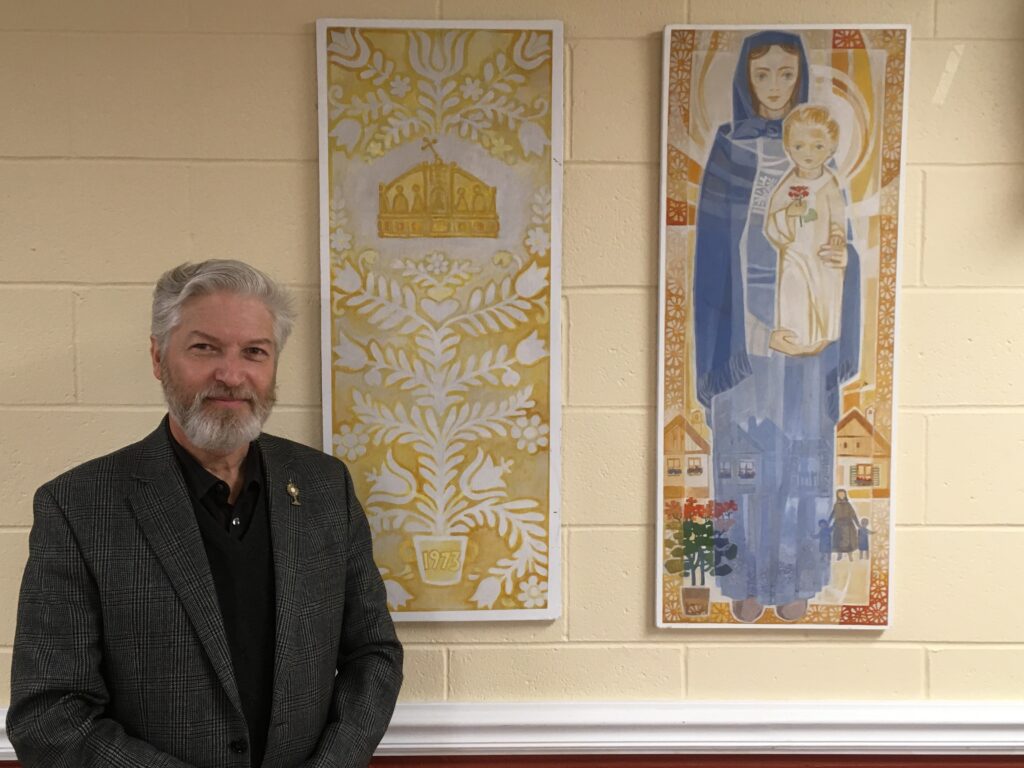
Career Path
At first, he followed his vision of what he thought would make him happy and make him important in the eyes of the world: he studied hard and excelled in high school, at university and beyond. He received many awards, scholarships, recognition for scholarly work and commendations for his accomplishments. As a result, it seemed for a while that this was the right road for him, and he realized only later he was greatly mistaken. ‘I very much liked the learning process itself; anything I was interested in, I studied and learned, despite not seeing a goal or understanding why I wanted it. I didn’t understand back then that everything God created for this world is there for our amazement to discover, study and learn. But without Him nothing makes sense. While I was doing it for my parents’ sake, I was indirectly following God’s will, but when I started to do it for my own edification and for other people’s respect, that’s where I went astray and started to work against myself…If you embark on a task only because you want to experience it, to feel success or self-worth or because you think you deserve it, that’s always a selfish act. I’m aware how strong social critique is, since today everything is about the experience and “the fear of missing out”. Back then, I wasn’t aware of this either, I just felt it wasn’t right.’
For some time, he didn’t see a clear goal for all his study efforts and later his career seemed to plateau as well, and despite making new career goals for himself, he was unhappy. As he explained, electrical engineering is probably the most difficult and encompassing field of all engineering sciences. For this reason, very few electrical engineers end up in their original career paths and now that the economic conditions have caused drastic reductions of U.S. manufacturing, there is a reduced need for such professionals. By the time he earned his PhD, it was clear his career was evaporating.
He had started at Bell Laboratories, the world’s largest and most advanced research institute that provided America with most of its military and civil development knowledge, as well as patents since its inception in 1937. ‘It was a great challenge and an honor to be hired, but after a while I couldn’t find my place there. The area of science that most interested me, the fundamental research area of fiber optics that also includes terrestrial and undersea cables that provide the world’s internet capabilities was sold off to first a domestic, then to a multinational conglomerate, and finally moved overseas. This, in my opinion, was a betrayal of trust and treason, of which I also became the victim. I couldn’t stay and do my work in good conscience. Fortunately, I was asked to teach at my alma mater (Rutgers University), and shortly thereafter accepted an adjunct professorship to the Electrical & Computer Engineering and to the Biomedical Engineering departments. While employed there, I completed an additional MED/PhD program to receive a dual degree in Biomedicine and Human Physiology by 2003. Medicine still appeared to be a place of opportunity.’
It wasn’t easy, but it seemed to him the right course to take. He continued to develop his consulting company he started in the ’90’s. However, with the second great recession of 2008 the contracts dried up quickly. By 2014, the only opportunities to work were cooperations with small start-ups with little or no budgets and managing his investment properties he bought along the way. His career was basically over.
Family
István’s wife, Brigitte’s parents married in Hungary and were ’56ers arriving in the U.S. in 1957. Their only child was born in New Brunswick, directly into the Hungarian community. She was a cradle Catholic who attended St. Ladislaus school, from kindergarten to eighth grade, was a Hungarian scout from the age of four, and an avid folk dancer from a young age. István, along with Zsolt Balla, led an adult scouting group to keep together young adults in the Hungarian community. Roughly thirty young people met regularly on Friday evenings for lectures, folk dance practice, and for going out together. Brigitte, a specialty physician of Neonatology and Pediatrics who was doing an extra residency year in the area, also joined the group. According to István, they are both quiet, humble, hard-working individuals who quickly found each other. ‘We married in 1988 and had our first child in 1989, Pisti, followed by Kati and Laci. We agreed to raise our children in a Hungarian language environment, based on our faith and our community service.’ The children became scouts, attended the Hungarian school and the folk dance groups as well as played and sang classical and folk music. Each of them have their strengths: Pisti in literature, Kati in folk dance, Laci in music. ‘It’s a great feeling for us that our children not only reach their highest potential but share it with others’, said István proudly.
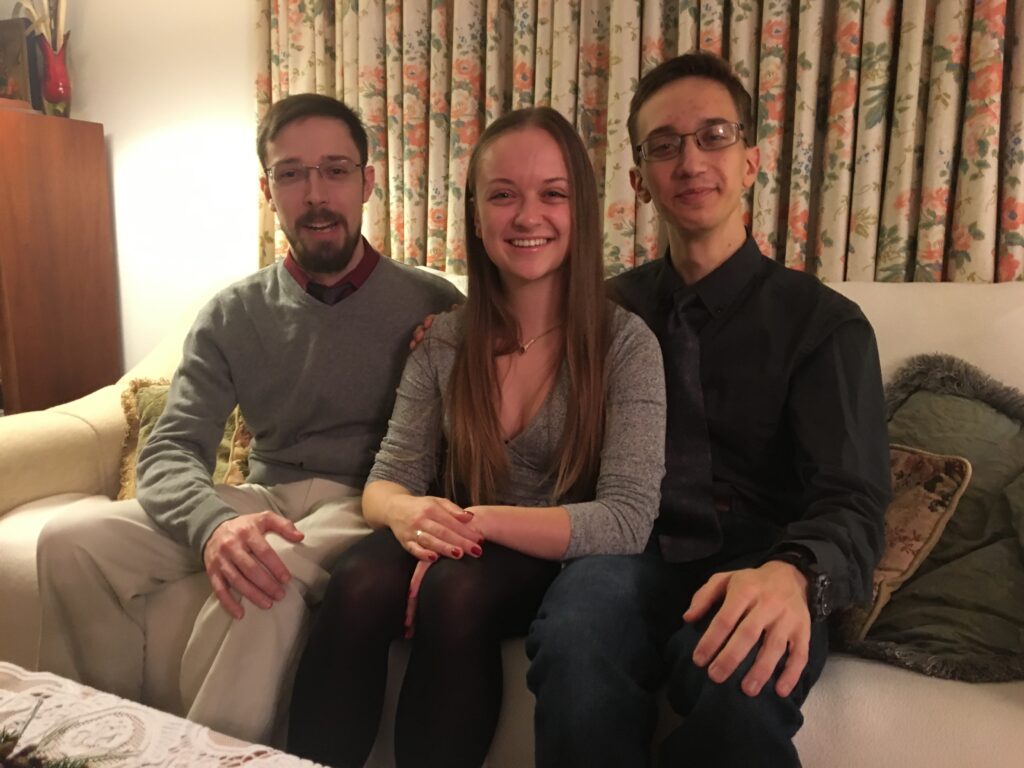
He confessed: he likes literature and in particular poetry very much. He often read to his children, and Pisti was very much drawn in by it. He was regularly asked to recite poetry in school which gave him confidence to follow this path. Since then, he writes his own poems and has published a volume, and enjoys translating publications. Kati has surpassed her parents in folk dance, first in the HAAC’s dance groups of Mákvirág (youth) and Csűrdöngölő (adult), then with Csillagszemű in Hungary while living there as a Balassi scholar and later with the Ferenc Erkel Dance Group while she was a university student in Budapest. She started her studies in pharmacy at Rutgers, but transferred in her second year to Semmelweis University (SOTE) in Budapest which she completed last year.
Laci’s story is even more unique: at age four he told his parents that he’d like to be a Catholic priest. Three years later, he told them the same again, and when he was nine and visited Hungary for the first time, he was taken to the Pannonhalma Abbey. He was so engrossed with the idea of going to school there that he wrote a letter to the school principal and after several months of waiting and then learning for a very strict entrance exam, was accepted to the high school as a seventh-grader at the age of 12. By the middle of the second year, he managed to find his place and sprouted his wings. From eighth grade to graduation, he was at the top of his class and his musical talent flourished again. All three children played the violin, but Laci was a virtuoso talent. He started in Westminster College Conservatory, Princeton at age five and moved to New York City School for Strings at age eight, and performed in front of live audiences from the age of seven. At Pannonhalma, he continued his violin studies with a master violinist from the Ferenc Liszt Academy of Music. After graduating from high school, he was allowed to stay for an additional year to finish his music degree in church music offered by the Music Academy of Gödöllő, while he assisted as dormitory prefect and was in charge of liturgy at the monastery. He learned to play the piano and the organ, and at weekends served in eight surrounding villages as an organist. Afterwards, he was accepted to SOTE in Budapest, following in his mother’s footsteps. However, after the first year, he returned to his childhood dream and applied to the Budapest Seminary. ‘He has a long road ahead, but he is a cheerful seminarian. It seems he avoided my misstep’, his father concluded.
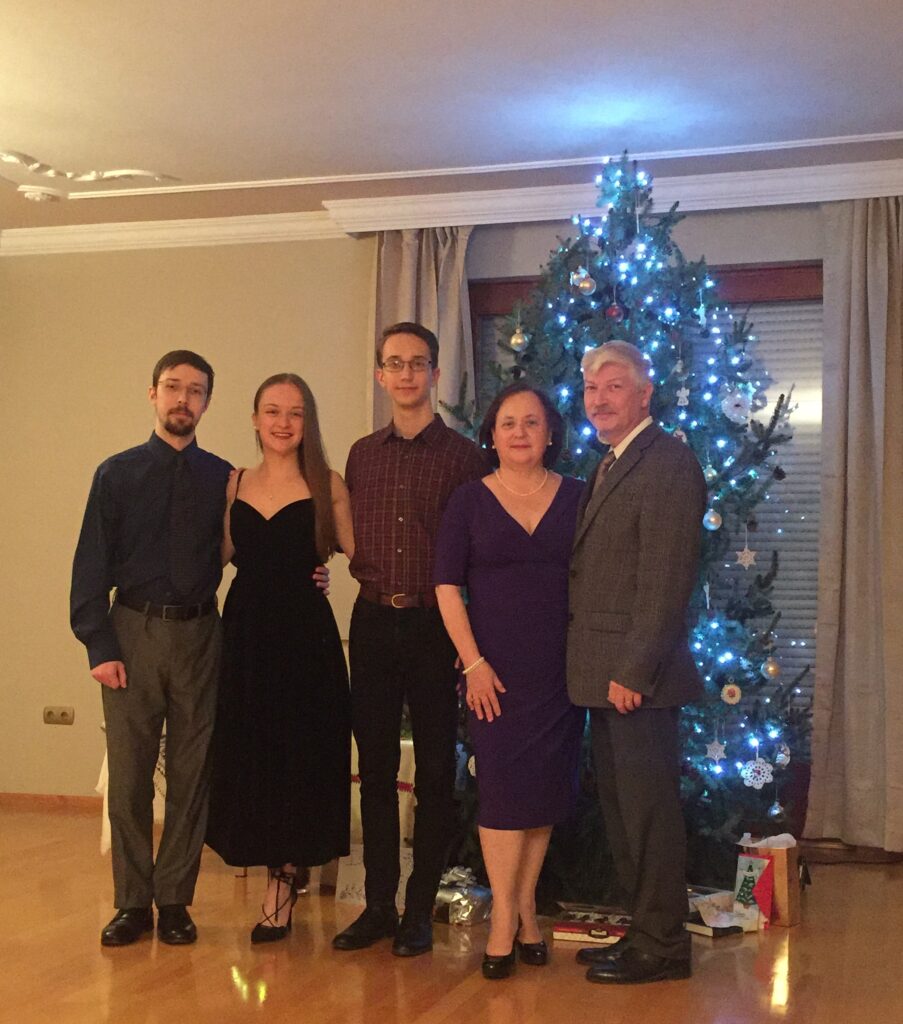
Community Service
‘I’m usually asked to head up a task or institution when it needs to be put in order,’ István noted. In the early 1990s Rev. Máté Kiss, OFM asked him to be a parish council member, because the pastor couldn’t deal with the parishioners’ discontent. In 1994, Rev. Paul Rotondi, OFM retained him to help manage the second renovation of the church by cleaning up the serious financial issues of the parish. In 2010, Rev. Kerrigan, Pastor of the new Holy Family parish, requested him to be in the parish council during the controversial consolidation of the local parishes to assure a smooth transition.
As regards the teaching of catechism, he maintains: ‘I came to realize that all pursuit of knowledge without God is vanity. All knowledge, talent and knowing comes from Him, we are merely custodians and molders of the knowledge we’ve received. If we keep it to ourselves, we benefit from it, but no one else does and it dies with us. The Blessed Mother asked me to teach catechism, but I initially thought this referred only to my family. But shortly thereafter, Ft. Capistran, OFM asked me to assume the role as the parish catechist left for a new job assignment. I didn’t attend any formal training, so I didn’t feel competent, yet I accepted.’ He had altogether 55 catechumens, 39 for first communion and 16 for confirmation. ‘Parents often worry that their children don’t comprehend the Gospel and the catechism as it’s taught, they complain that it’s too difficult or abstract. It’s not necessary to “dumb them down”, but it’s important to connect life experiences to the discussions. It’s not necessary for a child to understand everything at once. Sometimes it takes several weeks for a child to finally raise the first question or to contribute to the discussion, depending on the topic and how it affected them spiritually. It’s not the memorization of the knowledge that’s important, but to allow them to ponder the spiritual world. They may not have the opportunity to discuss or talk about these things at home. Children tend to raise the most fundamental questions of life that adults don’t dare ask: ‘Who am I?”, “What’s the purpose of my life?”, “Who made me?”, “Who is God?”…’
Similarly, at one point he was asked to lead the Hungarian school because its financial problems and internal personal conflicts strained its operation. István is most proud of the converts among the teachers during his tenure. ‘I zealously spread the Gospel word, and for that I had many enemies, but ultimately there were six adult baptisms during this time.’ As an adult scout leader, he always helped where he was needed: he was field day sports team member, referee, organizer; poetry recital participant, organizer and juror. As the president of the scout parent organization, he oversaw the renovation of the scout house on Plum Street. He helped for 14 years in a row as a technical assistant in the scout leadership and jubilee camps. ‘I put even my engineering skills to good use, but I’m also proud that I taught at the annual summer school camps for several years.’
At the large-scale annual Hungarian Festival, István helped as leader of the various organizations involved—St. Ladislaus Church, Hungarian Scouts, Hungarian School and the HAAC—by planning, preparing, ordering and managing to feed thousands of visitors who came to celebrate the Hungarian heritage in New Brunswick for close to thirty years. He was also on the jury of the annual cauldron-cooking contest for seven years, prepared cauldron soups and stews for large events such as the Linden Palinka Festival as well as managed the cooking and baking for New Years parties, Christmas and Easter bake sales, St. Nicholas Day and Mardi Gras celebrations, balls and picnics throughout the year.
Closing
István explained that while in Hungary communism tried to convince people for fifty years that there is no God, in America capitalism did the same. The first immigrants needed God in their lives to endure the overwhelming hardship they faced, therefore they built churches, organizations and communities. The next two generations lack this experience.
‘As we weaken and become flabby in our excesses, we don’t make any sacrifices in our lives anymore to be in touch with our Creator; we slowly move away from Him and finally leave Him altogether. As we remove God from our lives, we think the world has turned against us, but in fact we have turned against God’s world. Therefore, “saving the planet” doesn’t require great new green deals and forced recycling, it only requires that we keep God in our lives. So many of us are so proud of their children’s and grandchildren’s successes, and that’s fine, but it would mean much more with God in our minds. With Him, everything we do has a meaning, and so will our life in the community. Pursuing success aimlessly leads to a very bitter, selfish life. Therefore, when Hungarians complain like this: “Why can’t we recruit young people, why don’t they come to our events?”, I answer them with another question: “Where are your children and grandchildren?”. And if they ask: “Why can’t we have events and programs like we did in the past?”, I again answer with a question: “Who will organize the event, will you do it?”. Then they quickly go silent. I don’t mean to offend them and I’m not trying to lecture them, but if each of these families would did their small part starting with their own families, we’d be much better off. If everyone asked themselves: “What have I done to solve this problem?” or “What will I do going forward?”, the situation would be different. If they only complain about not getting along with certain others in the community, will there be another community to go to? If everybody only takes out of the community, but doesn’t give back to it, there will soon be no community at all. Just think of the hardships our ancestors had or even now in some parts of the world others have to endure, in political strife, wars, oppression! We live in utter excess and comfort. We shouldn’t complain, we should act.’

